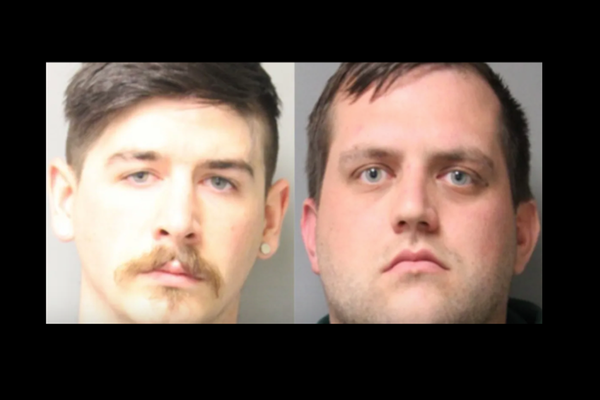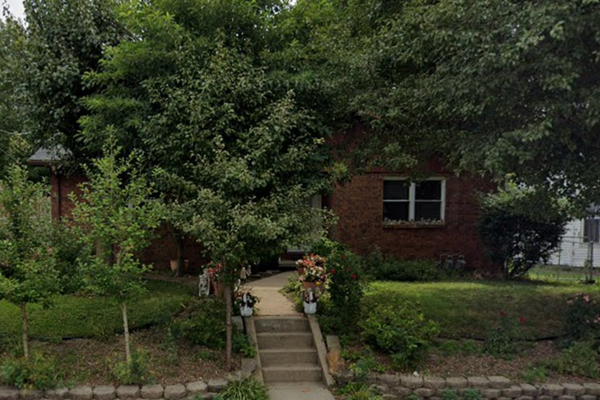Phil Mickelson’s absence will no doubt loom large over the PGA Championship. A year after his improbable win at Kiawah Island, this week would have been a celebration of that accomplishment and so many others in his career.
Instead of sadness at how far the most beloved golfer since Arnold Palmer has fallen, however, there should be a sense of relief. Bad as it’s been to see his image and reputation go up in flames from a distance, it would be far worse to see the blaze up close.
And that’s exactly what would have happened had Mickelson showed up at Southern Hills.
Waiver requests for the next event on the Saudi-backed tour, almost certain to be denied by the PGA Tour, are due Tuesday. That’s also the day that “Phil,” an unauthorized biography by longtime golf writer Alan Shipnuck that shows the craven and boorish side of the six-time major champion that the public rarely sees, is released.
Neither will show Mickelson in a positive light, and he will not be able to dodge the pointed questions whenever he does resurface. The more space he can put between himself and the revelations that undermine the Man of the People image he’s crafted so carefully all these years, the better.
That’s a distance that cannot be measured in days or even weeks, mind you, but rather in months and major championships. He’s already missed the Masters and now the PGA. If Mickelson is smart, he won’t play the U.S. and British Opens, either.
That’s how corrosive the vile and selfish things Mickelson said, and were said about him in Shipnuck’s book, are.
“Mickelson’s future was unlimited,” Shipnuck wrote, “as long as he could avoid saying something stupid.”
Mickelson is hardly the first athlete who has turned out to be not what he seemed, his true self a disappointment to those who conflated athletic ability with moral character. What makes Mickelson’s fall so stunning was that he was so committed to the con.
For 30-some years now, he has presented himself as Every Man. With his goofy grin, a penchant for audacity that bordered on reckless and an endless patience for seemingly everyone who wanted an autograph, a ball or just a high five, he made fans feel special. Seen.
He was an entertainer as much as an athlete, and he gave everyone a front-row seat to his circus.
But like every show under the big top, it was as much illusion as it was reality.
According to Shipnuck’s book, Mickelson can be gracious and kind. He is generous with his tips for clubhouse attendants and waiters. He paid to retrofit the house of a casual acquaintance after he was paralyzed in a motorcycle crash. Upon hearing that fellow pro Ryan Palmer’s wife had been diagnosed with breast cancer, Mickelson immediately put Palmer in touch with the doctors who had treated his wife, Amy.
But Mickelson also can be immature and cruel, delighting in other’s failings and dredging up embarrassments years later. He is also ruthlessly calculating.
In Shipnuck’s book, Brandel Chamblee shares a story from early in Mickelson’s career of Mickelson blowing off a child who wanted an autograph, telling the boy he’d come back after his round.
“This little boy was crestfallen,” Chamblee recalled. “He wasn’t gonna wait around for six hours to ask again and they both knew it.”
“I’m not saying this to denigrate Phil, just to illustrate that it was strategic when he decided to start signing all those autographs,” Chamblee continued. “Because early in his career he didn’t sign a lot. I’m 99 percent sure it was strategic because Tiger (Woods) hated signing and pretty much refused to do it. Phil saw there was a void and decided he would be the superstar who signs for everyone.
“And that elevated the narrative surrounding Phil.”
That kind of cool self-interest helps explain what is Mickelson’s greatest sin: his involvement with LIV Golf Investments.
Mickelson defending his interest in the alternate tour by slamming the PGA Tour for its “obnoxious greed” is both hilarious and the height of hypocrisy. This, after all, is the multimillionaire who whined about the taxes he has to pay as a California resident. A man whose career earnings alone top $800 million.
Worse, though, is Mickelson’s cavalier attitude about throwing in with the Saudi royal family. He is well aware that Crown Prince Mohammed bin Salman had Washington Post columnist Jamal Khashoggi killed and dismembered because Khashoggi was a vocal and unrelenting critic. He knows the Saudi government is repressive, particularly to women and members of the LGBTQ community.
But he considers it a small price to pay to bring the PGA Tour to heel. And further line his pockets, of course.
“They’re scary (expletives) motherf—–s to get involved with,” Mickelson told Shipnuck in a November phone call that didn’t become public until February. “Knowing all of this, why would I even consider it? Because this is a once-in-a-lifetime opportunity to reshape how the PGA Tour operates.
“They’ve been able to get by with manipulative, coercive, strong-arm tactics because we, the players, had no recourse,” Mickelson added. “As nice a guy as (PGA Tour commissioner Jay Monahan) comes across as, unless you have leverage, he won’t do what’s right. And the Saudi money has finally given us that leverage.”
Ah yes. What’s a little murder and torture among friends when there’s golf to be played and money to be made!
There will come a day when Mickelson makes a sheepish return, apologizing and asking fans for forgiveness, and no doubt some will. He’s brought too much joy and entertainment for too many years for them to hold a grudge.
Others, however, will never be able to see Mickelson the same way. Their fun and folksy hero is anything but, and he does not have enough years left in his career to write a redemption story.
It’s sad that Mickelson is missing the ultimate victory lap for his career this week. What’s even sadder is why, and who Mickelson has shown himself to be.







